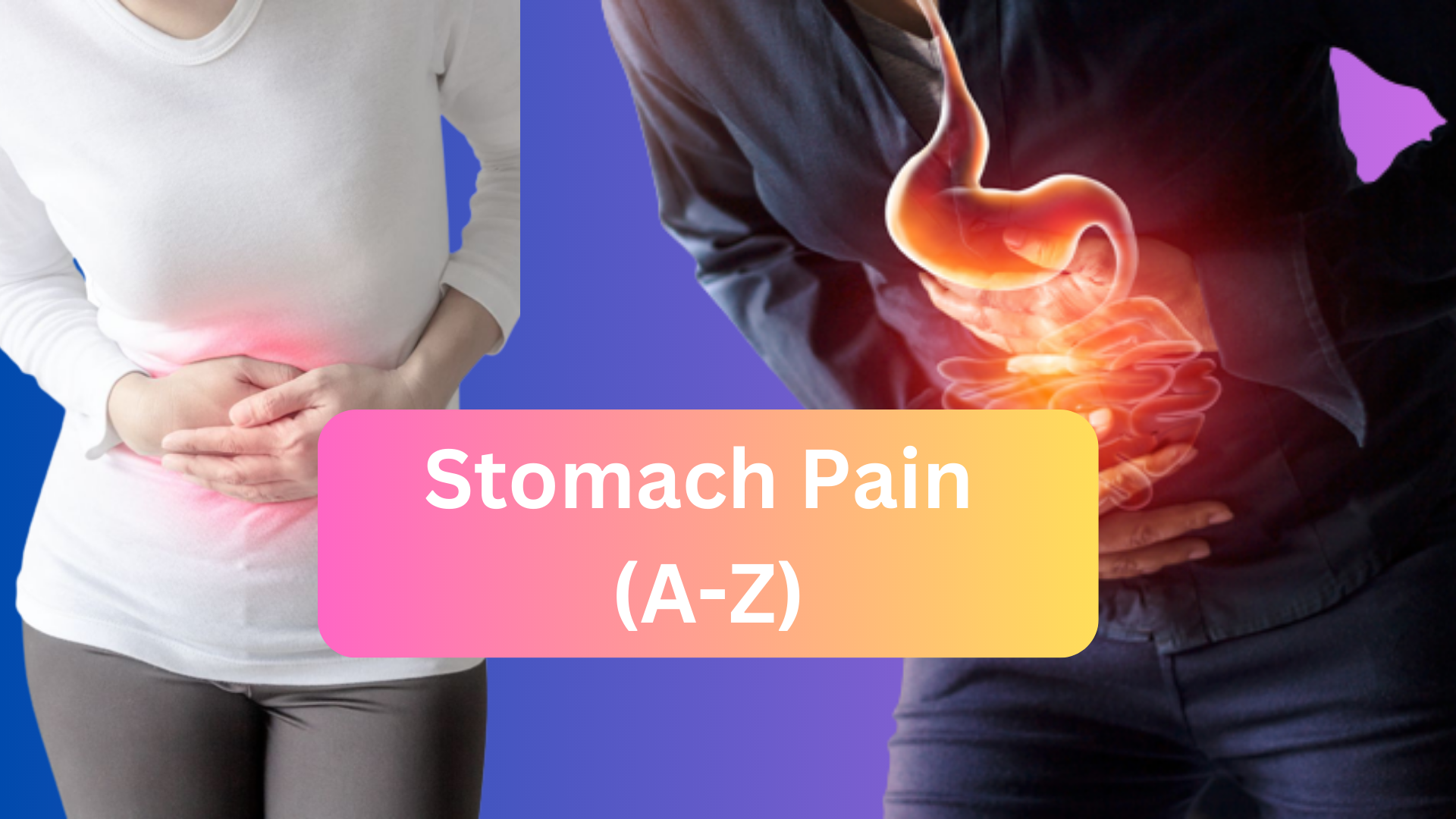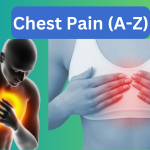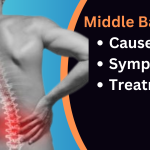Stomach Pain View: Causes, Symptoms & Best Treatment. Click to learn about ulcer in the stomach, pain in lower left abdomen, pain in lower right abdomen, upper left abdominal pain , pain on right side of stomach.
We all experience occasional stomachaches, unsettled stomach, and abdominal discomfort, which are typically not significant. However, if you are having severe or unexpected stomach pain, they might be signs that something in your body is not working properly.
There are numerous potential causes, ranging from flatulence or a strained muscle to an internal infection or heart attack.
If you experience stomachaches or unsettled stomachs frequently, or if they are severe or persistent, you may need to see a doctor.
Types of Stomach Pain
There are various varieties of abdominal discomfort distinguished by duration, intensity, and sensation. Abdominal discomfort can be acute pain, chronic pain, or progressive pain.
Acute abdominal discomfort is typically temporary, lasting only a few hours or days. Chronic pain can last for weeks, months, or even longer, and it typically comes and goes.
Progressive abdominal pain worsens over time. There may be additional symptoms associated with progressive abdominal discomfort.
Similarly, stomach pain can be moderate to severe. Pain intensity is not always proportional to the severity of the potential cause.
Additionally, discomfort can be classified by its location. Upper abdominal pain (Upper Back Pain) may be caused by gallstones, hepatitis, pneumonia, or a heart attack. Pain in the middle of the abdomen could be the result of an injury or appendicitis.
Pain in the lower abdomen or around the belly button may be the result of an injury, influenza, excrement that has calcified, kidney infection, hernia, appendicitis, or cancer.
Lower abdominal discomfort (Lower Back Pain) in women can be caused by menstrual cramping, miscarriage, endometriosis, or ovarian fibroids. Stomach discomfort can also be classified based on its intensity.
Sharp Pain
Acute stomach pain arrives and goes in acute or intense waves. This form of pain is also known as muscle spasms (Muscle Pain), waves of pain, brief spurts of pain, and surges of pain. Sharp pain is typically excruciating and may indicate significant conditions such as gallstones.
Cramp
Abdominal cramping cause a feeling of constriction or pressure in the abdomen. Typically, cramps are caused by gas, dyspepsia, diarrhea, bloating, constipation, menstruation, or an impending miscarriage. Typically, cramps occur intermittently and may subside wholly on their own.
Inflammation
Stomach inflammation may feel like a searing sensation in the abdomen. This may be accompanied by inflammation and irritation.
Localized
Localized stomach pain is distress confined to a particular region of the abdomen. Typically, localized discomfort indicates a problem with a specific organ, such as hernias or gastric ulcers.
Causes of Stomach Pain
Your stomachache can be mild or severe, Infections, inflammation, menstrual cramping, obstructions, tumors, and abdominal ailments or conditions are common causes of abdominal discomfort.
Most of the causes of belly aches (Back Pain) are not serious and not a reason for concern. However, some stomach aches can be signs of a serious medical condition.
The causes of mild stomach pain include:
- Gas
- Indigestion, which may feel like your stomach is burning
- Constipation
- Diarrhea
- Stress (Tension Headaches)
- Stomach Flu/gastroenteritis
- Acid reflux
- Food poisoning
- Vomiting
Severe stomachaches can be very painful and impact everyday functioning. If your pain is so intense that you cannot remain still or must curl into the fetal position, please seek medical care immediately from a Health provider.
Symptoms associated with what is Stomach pain
Call your doctor if you have severe or acute stomach pain, if your stomach pain does not resolve within 24 to 48 hours, or if you have any of the following symptoms:
- Chest pain (seek medical attention immediately)
- Inflammation or edema that persists for more than a few days
- A recent injury or catastrophe
- Bloody or dark stools
- Vomiting blood or opaque material
- Variations in digestive practices
- Unexpected weight reduction
- Trouble ingesting
- Diarrhea lasting over five days
- Prolonged vaginal discharge
- Fever over 100 degrees
- The sensation of burning when urinating or frequent incontinence
- Any of these additional symptoms may indicate a more significant underlying cause requiring medical intervention.
Diagnosis
Your doctor will perform a physical exam to identify your abdominal pain, and more tests may be necessary to confirm the diagnosis. Your doctor will inquire about your symptoms, the level of pain you are experiencing, and its location during the physical examination.
Additionally, your doctor will typically apply light pressure to various areas of your abdomen to feel for any sensitivity or swelling. Depending on the results of the examination, your doctor may recommend further testing.
These tests might need to be referred to other facilities, like the hospital itself, at some Baptist Health Urgent Care locations. Typically, these tests involve imaging examinations like X-rays, ultrasounds, and Magnetic Resonance Imaging (MRI) scans.
With the help of imaging tests, your doctor can examine the inside of your body to look for any damaged organs, inflammation, cysts, or other potential sources of your discomfort.
Your doctor may take blood, urine, and stool samples in addition to imaging tests to look for bacterial, viral, and parasite illnesses.
The following tests may also be ordered:
Upper GI: This procedure is essentially an X-ray that checks for obstructions, growths, ulcers, edema, and other abnormalities in the belly.
Colonoscopy: To check for impacted areas inside your colon and intestines, your doctor will use a thin, flexible tube with a light and camera attached to it.
Endoscopy: Your doctor will carry out this procedure to look within your stomach and esophagus for any possible obstructions or underlying pain-causing conditions.
Best Treatment Options
In order to treat stomach discomfort, the ailment’s underlying cause is typically addressed. This frequently entails using either medicine, surgery, or a mix of the two.
Drugs are administered to treat infections, lessen inflammation, or stop the recurrence of ailments like acid reflux. Surgery is performed to treat tissues or organs that are causing your stomach pain.
We advise against taking any over-the-counter drugs unless your doctor specifically prescribes them, they can prescribe the medicine like, Pain O Soma 500mg, Aspadol 100mg, and some others. Some over-the-counter drugs may make your pain worse.
Reduced calorie intake, eating more slowly, frequent exercise, and stress reduction are all lifestyle modifications that can lessen and even eliminate stomach pain.
Baptist Health is ready to assist you when you’re prepared to inquire for more details.
Q. What is chronic Stomach Pain?
Stomach pain that lasts longer than three months is referred to as chronic pain. It can be either intermittent (comes and goes) or continuous (present constantly).
Q. What are some common clinical symptoms of chronic Stomach Pain?
- Possibly a sharp or dull stomach ache
- Several hours or several minutes worth of intermittent pain
- Abdominal discomfort
- Eating-related pain that may or may not have been present
- Anytime-occurring pain
Q. Is chronic Stomach Pain a common condition?
Around the world, both children and adults suffer from chronic stomach pain. Women are primarily affected more than males are.
Q. What lab tests are usually ordered for chronic Stomach Pain?
- A full blood cell count, and urine analysis
- Blood tests to assess the health of the pancreas, kidneys, and liver
- If you’re over 50 or you have risk factors for colon cancer, you should get a colonoscopy.
- A CT scan of the abdomen if the patient is younger than 50.
- If doctors suspect a gallbladder or gynecologic issue, they may order an ultrasound
- A gastrointestinal tract endoscopy to examine the interior




1 Comment